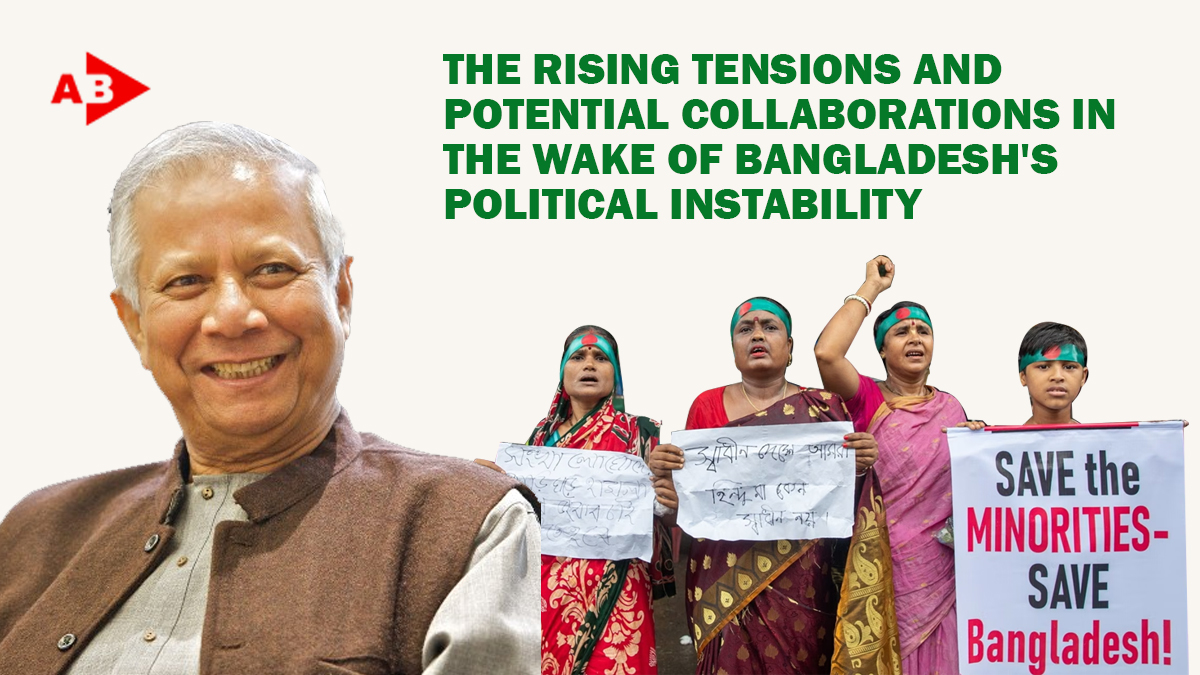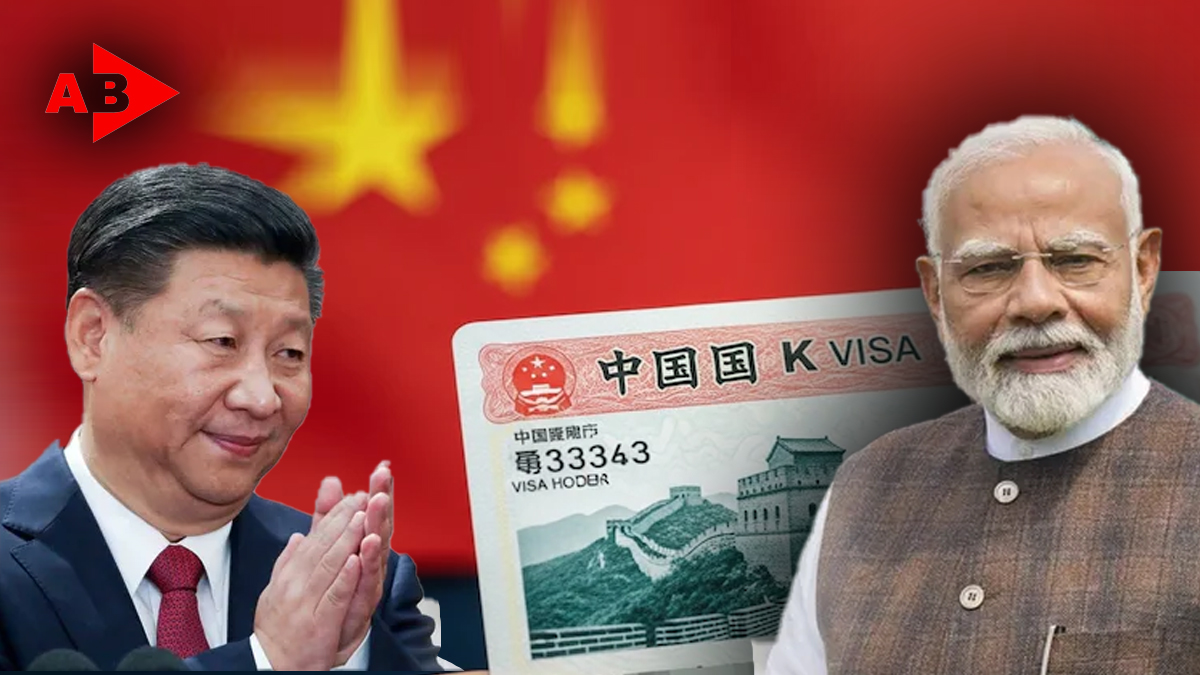
The Rising Tensions and Potential Collaborations in the Wake of Bangladesh’s Political Instability
An analysis of the current instability in Bangladesh and its repercussions on India-Bangladesh relations, alongside a vision for potential collaborations in a mutual pursuit of peace and stability in South Asia.
Jotirmoy Roy, AB News, New Delhi: The relationship between India and Bangladesh stands at a critical crossroads marked by present instability and future uncertainties. While historical ties and cultural affinities suggest a strong foundation for cooperation, the current sociopolitical turmoil in Bangladesh raises important questions about the future trajectory of this bilateral relationship. Recent incidents of violence against minority communities, particularly Hindus, along with the interim government’s shifting allegiances, have led to increasing concerns in India regarding its neighbor’s stability and governance.
Bangladesh’s interim government, led by Mohammed Yunus, has publicly assured steps to safeguard the rights and security of minority communities. However, the reality on the ground tells a different story. Reports of attacks against Hindus and other minority groups have emerged, fueling protests and anxieties in India. The growing unrest and the government’s apparent inability to mitigate these concerns have led to calls from various quarters, including the Rashtriya Swayamsevak Sangh (RSS), for India to consider more decisive actions if dialogue fails to yield results.
In recent months, Bangladesh has also taken questionable steps that raise alarms about its intentions. The removal of security checks for Pakistani nationals seeking visas and the activation of maritime trade routes with Pakistan are not mere administrative changes; they signal a warming of relations that could complicate India’s strategic calculus. Such moves, viewed through the lens of past hostilities and Pakistan’s historical objectives to destabilize India, lay the groundwork for heightened tensions. This situation becomes even more precarious considering China’s growing influence in South Asia, further complicating an already intricate geopolitical landscape.
The political turmoil in Bangladesh is underscored by fears of a government unable to uphold democracy and protect minority rights. The recent arrest of ISKCON-affiliated leaders and the hostile environment towards Hindus and indigenous communities reflect a downturn in governance and a potential regression in human rights standards. As Bangladesh grapples with these challenges, the ramifications for India are profound. With rising anti-India sentiment being leveraged for political gain, any further destabilization in Bangladesh could lead to more significant security challenges for India, both in terms of cross-border movements and the potential for increased militant activity.
Yet, in this environment of uncertainty, there lies a potential path forward. A renewed focus on bilateral dialogues, particularly involving communities on both sides of the border, can serve as a unifying mechanism. India could play a proactive role in supporting civil society organizations in Bangladesh that work towards promoting inter-community harmony and sustainable development. By engaging more deeply with the grassroots movements aimed at fostering communal peace, India could help mitigate some of the tensions that are currently brewing.
Moreover, addressing the shared challenges posed by climate change can become a platform for enhancing cooperation. As Bangladesh faces existential threats from rising sea levels and natural disasters, India can bolster its support for collaborative environmental initiatives and disaster management programs, positioning both nations as leaders in South Asia for sustainable development.
Looking ahead, the complexity of India-Bangladesh relations requires a multifaceted approach. Diplomatic engagement rooted in addressing minority rights and enhancing economic cooperation will be crucial. However, despite these efforts, one cannot ignore the likelihood of turbulence as Bangladesh continues to navigate its political landscape. The outcome of this journey is pivotal—not just for the nations involved, but for the broader stability of South Asia.
In conclusion, while the current situation in Bangladesh presents numerous challenges for India-Bangladesh relations, it also opens avenues for continued dialogue and cooperation. As both countries emerge from this turbulent phase, a commitment to mutual respect, understanding, and engagement will be paramount. The future of the Indo-Bangladesh relationship hinges on their ability to address pressing issues while recognizing their shared history and interdependence. With thoughtful policy and strategic foresight, both nations can aspire to foster a stable, prosperous, and collaborative future.
Disclaimer for Opinion Articles: The views expressed in this article are those of the author and do not necessarily reflect the official policy or position of any organization, institution, or government entity. The content of this article is intended for informational and educational purposes only and should not be construed as legal, financial, or professional advice. While every effort has been made to ensure the accuracy and reliability of the information presented, the author and publisher assume no responsibility for errors, omissions, or any consequences arising from the use of this information. Readers are encouraged to conduct their own research and seek professional guidance before making decisions based on the content of this article.


